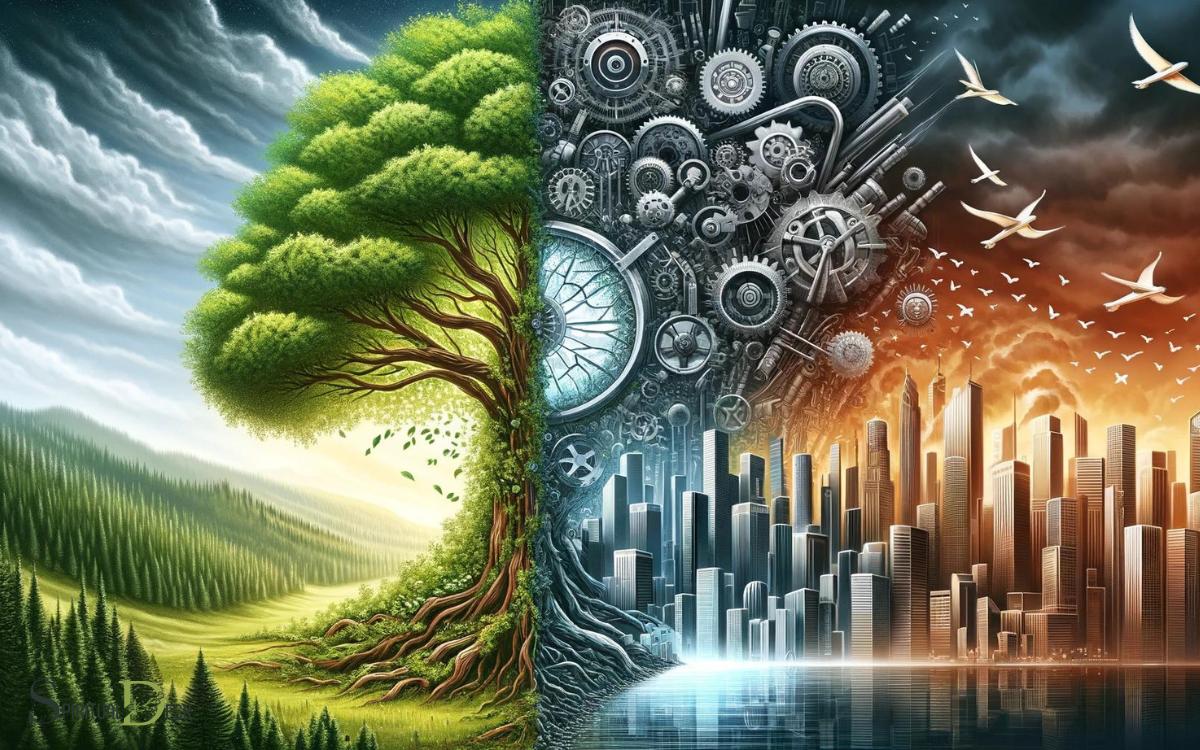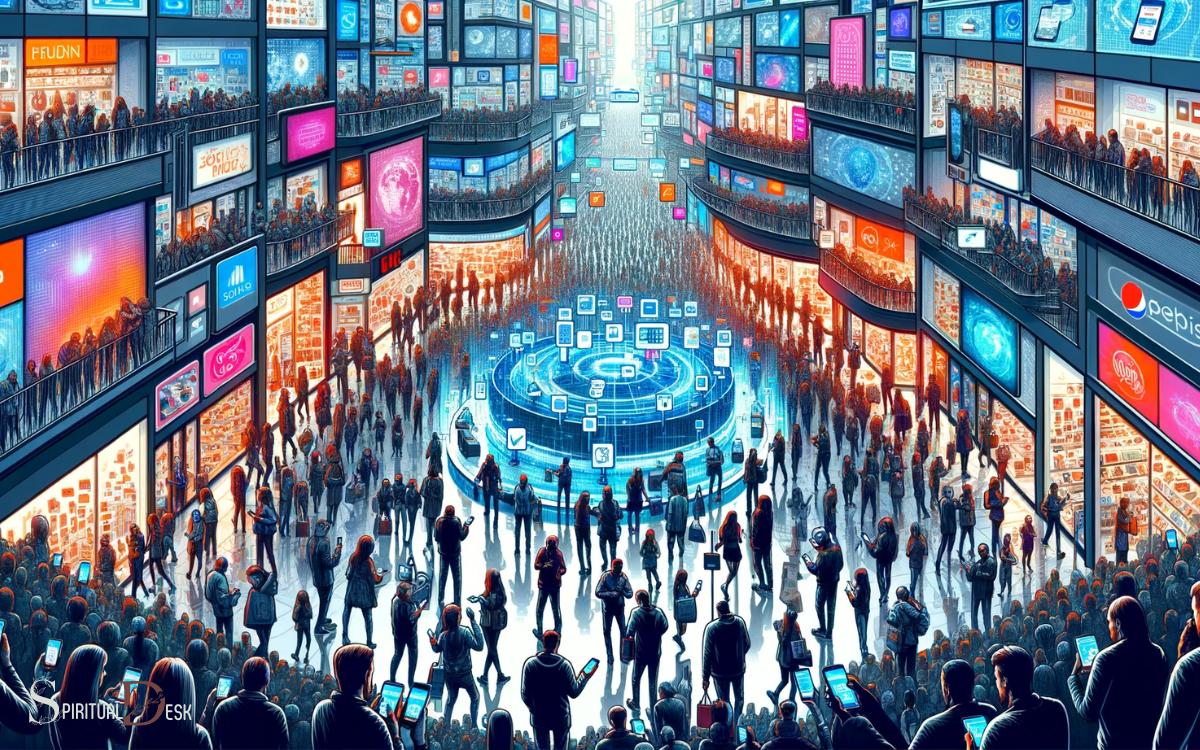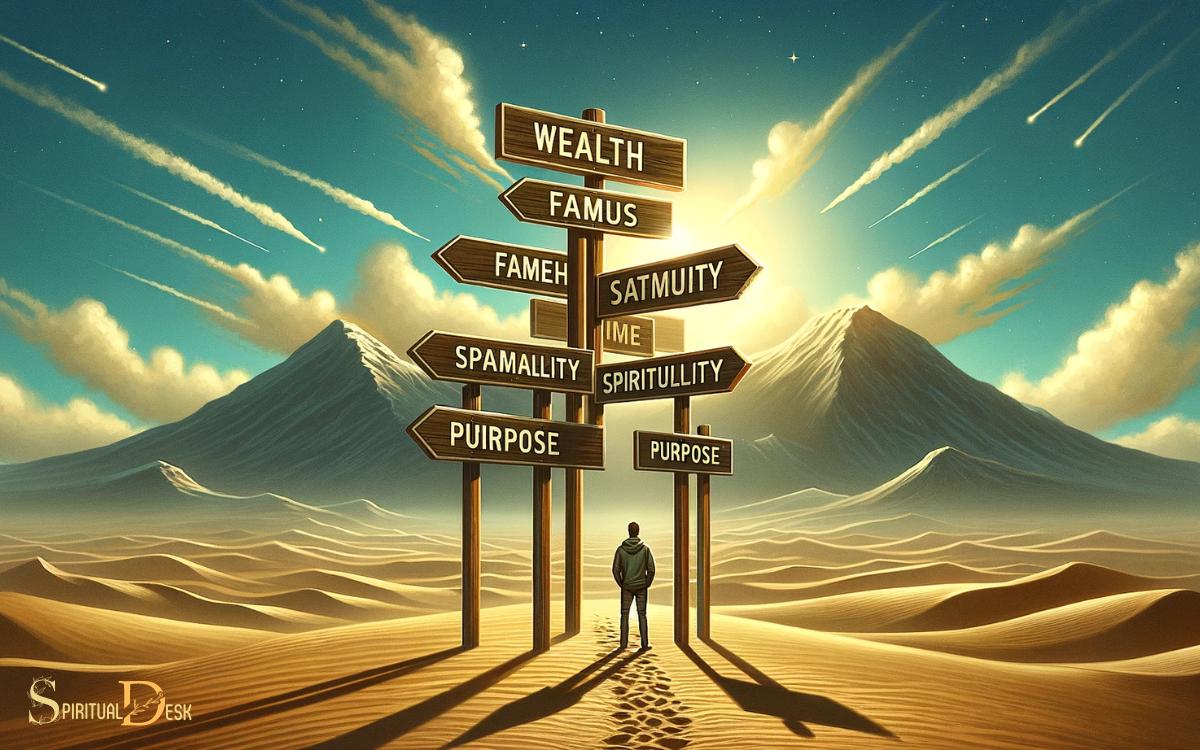The Spiritual Problem of Modern Man: Find Out Here!
The Spiritual Problem of Modern Man is an increasingly relevant concern, highlighting the struggle to find meaning and connection in a world dominated by materialism, rapid technological advancement, and a shift away from collective values.
Individuals are searching for ways to harmonize their spiritual needs with the realities of contemporary society, often facing feelings of alienation and existential uncertainty.
The issue at hand stems from several factors:
For example, someone who spends excessive time on social media may feel disconnected from their community and struggle to find meaningful relationships, leading to a spiritual void.
In the quest for purpose, modern individuals often confront the dissonance between their inner spirituality and the outer material world.

Key Takeaway
4 Factors: Spiritual Problem of Modern Man
| Factor | Impact on Spirituality | Example |
|---|---|---|
| Materialism | Obscures deeper fulfillment | Prioritizing wealth over well-being |
| Technology | Can hinder genuine connections | Excessive use of social media |
| Consumerism | Distracts from spiritual growth | Endless pursuit of the latest products |
| Individualism | This may lead to isolation and a lack of support | Neglecting community for self-interest |
The Rise of Materialism

The rise of materialism has profoundly impacted modern society, shaping individuals� values and priorities.
In today�s consumer-driven culture, the pursuit of material wealth and possessions often takes precedence over spiritual or emotional fulfillment.
This shift has led to a society that places greater importance on external markers of success, such as wealth, status, and possessions, rather than intrinsic values like compassion, empathy, and personal growth.
Materialism has also been linked to a range of negative outcomes, including increased levels of stress, anxiety, and depression as individuals constantly compare themselves to unrealistic standards of material success.
Moreover, the relentless pursuit of material wealth can lead to a sense of emptiness and dissatisfaction, as true fulfillment often comes from meaningful relationships, personal development, and a sense of purpose beyond material possessions.
Impact of Technology and Consumerism

The pervasive influence of technology and consumerism has led to a growing disconnect from nature, fostering materialistic values and a sense of emptiness.
This shift has also resulted in the cultivation of shallow relationships, lacking the depth and authenticity essential for spiritual fulfillment.
As we explore the impact of technology and consumerism, it becomes evident that these forces have contributed to the spiritual problem confronting modern individuals.
Disconnect From Nature
In modern society, the pervasive influence of technology and consumerism has resulted in a significant disconnect from nature.
As individuals become increasingly dependent on technology and material possessions, they are losing touch with the natural world.
This disconnect has profound implications for the well-being of modern man, impacting mental, emotional, and spiritual health.
The consequences of this disconnection from nature include:
- Diminished appreciation for the beauty and tranquility of the natural world.
- Increased stress and mental fatigue due to constant exposure to artificial environments.
- Reduced opportunities for physical activity and outdoor experiences, leading to a sedentary lifestyle.
Addressing this issue requires a conscious effort to re-establish a harmonious relationship with nature, promoting balance and holistic well-being in the modern world.
Materialistic Values and Emptiness

As modern society becomes increasingly immersed in technology and consumerism, the resulting materialistic values and emptiness further exacerbate the disconnect from nature experienced by individuals.
The relentless pursuit of material possessions and the constant exposure to consumerist messages contribute to a sense of emptiness and dissatisfaction.
Technology, while offering numerous conveniences, often fosters a shallow and superficial way of living, distancing individuals from meaningful connections and experiences.
This emphasis on material wealth and possessions creates a void within individuals, as their focus shifts away from spiritual and emotional fulfillment towards the accumulation of goods.
Consequently, the pervasive materialistic values and emptiness perpetuate a profound disconnection from the natural world, hindering individuals from seeking solace and meaning in the simplicity and beauty of nature.
Shallow Relationships, Lack of Depth

Amidst the pervasive influence of technology and consumerism, shallow relationships and a lack of depth have become increasingly prevalent in modern society.
The impact of technology and consumerism has led to a shift in the way individuals interact and connect, often resulting in superficial and fleeting relationships.
This phenomenon is characterized by a lack of meaningful engagement, emotional intimacy, and genuine connection.
The following factors contribute to the prevalence of shallow relationships and a lack of depth:
- Digital Communication: The reliance on digital communication platforms has diminished face-to-face interactions, leading to a lack of deep, meaningful conversations.
- Consumerist Culture: The emphasis on material possessions and instant gratification has overshadowed the value of cultivating profound and lasting relationships.
- Social Media Influence: Social media often prioritizes quantity over quality, fostering shallow connections and superficial interactions.
Individualism and Its Effects

The rise of individualism in modern society has led to increased feelings of isolation and disconnection among people, as the emphasis on personal autonomy often comes at the cost of meaningful social connections.
This shift has also resulted in a lack of community and a weakening of the bonds that traditionally held people together, leading to a sense of alienation and loneliness for many individuals.
The effects of individualism are far-reaching, impacting not only personal relationships but also societal structures and the overall well-being of individuals.
Isolation and Disconnection
One significant consequence of individualism in modern society is the pervasive sense of isolation and disconnection experienced by many people.
As individuals prioritize personal autonomy and self-reliance, they often find themselves alienated from their communities and support networks.
This isolation can lead to profound feelings of loneliness and a lack of meaningful connections with others.
The effects of this disconnection can be far-reaching, impacting mental and emotional well-being, as well as the overall fabric of society.
- Erosion of social cohesion
- Increased mental health challenges
- Lack of communal support and belonging
Lack of Community

In modern society, the emphasis on individualism has led to a significant lack of community and its detrimental effects on social cohesion and mental well-being.
The prioritization of personal achievement and self-reliance has contributed to the erosion of traditional community structures.
As a result, individuals often feel isolated and disconnected from meaningful social interactions and support networks.
This lack of community has implications for mental health, as it can lead to feelings of loneliness, anxiety, and depression.
Additionally, the absence of strong community ties diminishes opportunities for collaboration, mutual aid, and the sharing of diverse perspectives.
Addressing this issue requires a reevaluation of societal values to promote a balance between individual autonomy and the importance of collective well-being.
Fostering a sense of community can enhance social connectedness and contribute to overall psychological resilience.
Erosion of Traditional Values

Amidst the rapid advancement of technology and the globalization of cultures, traditional values are gradually eroding. This erosion is a cause for concern as it impacts societal cohesion and individual well-being.
The erosion of traditional values manifests in various ways, including:
- Disintegration of family structures leads to weakened support systems and a lack of guidance for individuals.
- Decline in ethical and moral standards, resulting in a society that is increasingly driven by self-interest rather than collective welfare.
- Loss of cultural heritage and identity leads to a homogenized global culture that lacks the richness of diverse traditions.
Addressing the erosion of traditional values requires a concerted effort to preserve and promote the principles that have long underpinned societies, fostering a sense of belonging and moral grounding.
Searching for Meaning and Purpose

The erosion of traditional values necessitates modern man�s search for meaning and purpose in a rapidly changing world.
As societal structures evolve and traditional belief systems wane, individuals are confronted with the existential challenge of finding significance in their lives.
This quest for meaning is driven by a deep-seated human need to understand one�s place in the world and to derive a sense of purpose from existence.
In the absence of clear-cut guidelines provided by traditional values, modern man grapples with questions of morality, identity, and fulfillment.
This search for meaning and purpose often leads individuals to explore various philosophical, spiritual, and introspective avenues to make sense of their lives and the world around them.
It is a profound and ongoing journey that reflects the complexity of the human spirit in the contemporary era.
Navigating the Spiritual Dilemma

One crucial aspect of navigating the spiritual dilemma facing modern man is understanding the interconnectedness of personal beliefs and societal influences.
Personal beliefs are shaped not only by individual experiences and introspection but also by the cultural, social, and historical context in which one exists.
Navigating this dilemma requires a thoughtful approach that acknowledges the following:
- Cultural Conditioning: Recognizing how cultural norms and values impact individual spiritual beliefs.
- Interfaith Dialogue: Engaging in open and respectful conversations with people from diverse religious and spiritual backgrounds.
- Critical Thinking: Developing the ability to critically examine and evaluate the sources of spiritual guidance and belief systems.
Conclusion
The modern man�s spiritual problem is indeed a perplexing predicament. The relentless pursuit of material wealth and the overwhelming influence of technology and consumerism have led to a profound erosion of traditional values.
The individualistic mindset has further isolated individuals from meaningful connections and purpose.
As society grapples with this dilemma, it becomes increasingly evident that the search for spiritual fulfillment and meaning is an arduous journey in today�s world.






